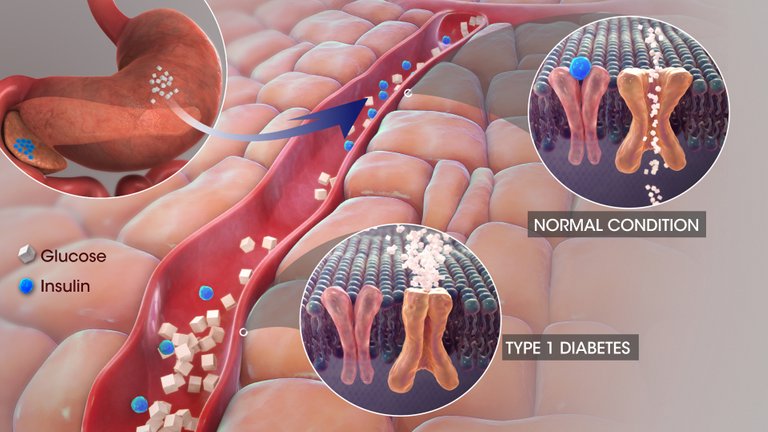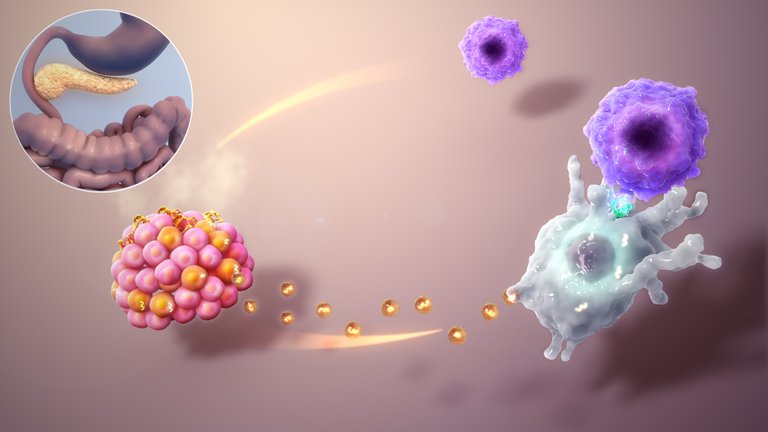Diabetes! Diabetes!!. When we hear the word diabetes, what comes to your mind? an you really differentiate type 1 from type 2 diabetes? In this post I will actually be discussing type 1 diabetes but it is important to understand what type 2 diabetes is first.
With type 2 diabetes, it has to do with when the body cannot use insulin usually known as insulin resistant. This can be treated with diet, exercise and medicine but with type 1 diabetes, the body cannot produce insulin generally. Now that you know the difference, what is insulin itself. It is an hormone secreted in the pancreas to regulate blood sugar (glucose in the blood). The inability to regulate blood sugar in the body can then lead to problem in the body, and when it becomes extreme it can lead to diabetic ketoacidosis which can lead to coma or death.
Type 1 diabetes is an autoimmune disease where the immune system attacks the pancreas preventing the production of insulin as it attacks the beta cells that produces the hormone. This cannot be regulated by exercise or diet, and people who suffer from type 1 diabetes come up with symptoms like frequent urination, frequent thirst, extreme fatigue, blurry vision, and weight loss.
To treat this autoimmune condition, two things needs to be done, the first being to stop the killing of the beta cells by the immune system, and the second being to replace the beta cells that were killed previously. The beta cells are killed by a type of immune cell known as the T-cells produced in the thymus gland. These T-cell can be helpers, killers, or regulators. The Killer T-cells and the Helper T-cells are responsible for destroying the beta cells.
To solve that problem of killing the beta cells, researches have been ongoing and one development from the transplantation immunology lab of Garvan Institute of Medical research used a vaccine referred to BCMA-Fc vaccine to deal with the attack. The vaccine when given to rat increased the number of regulated T-cells and reduced the numbers of Killer T-cells. When this is done, the process of replacing the Beta cells is done and it is usually transplanting but the drawback remains that there are a few organs for the people who need the transplantation.
Another issue is that when the islet is being transplanted, about 70% of them die after the first 36 hours of transplanting. Also people who are to get the transplant would need to take lots of immunodepresant so as to prevent the body from recognizing it as foreign. In all this, the condition is yet to be treatable and a lot of work is done to ensure that its treatment is possible.
While type 1 diabetes remains an incurable condition, ongoing research and advancements are bringing us closer to potential treatments. The goal is to find ways to protect and replace beta cells effectively, ultimately improving the quality of life for those affected by this challenging autoimmune disease.
Reference
https://www.ncbi.nlm.nih.gov/pmc/articles/PMC8473744/
https://emedicine.medscape.com/article/118361-overview?form=fpf
https://www.diabetes.org.uk/guide-to-diabetes/complications/diabetic_ketoacidosis
https://www.niddk.nih.gov/health-information/diabetes/overview/symptoms-causes
https://www.medicalnewstoday.com/articles/313138
https://www.frontiersin.org/journals/immunology/articles/10.3389/fimmu.2018.01891/full
https://www.theaustralian.com.au/news/latest-news/step-closer-to-diabetes-vaccine/news-story/21f4ba3433ffcd8fc946049f1738542b
https://www.ncbi.nlm.nih.gov/books/NBK26827/
https://www.akadeum.com/blog/different-types-of-t-cells/



